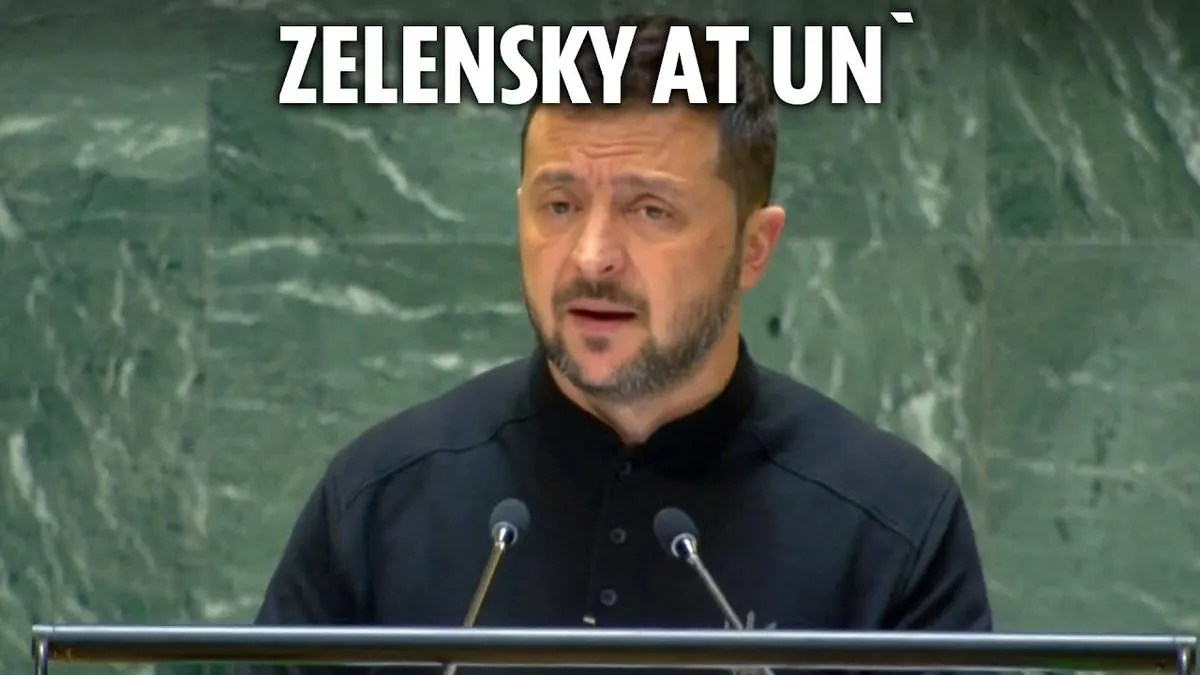In a significant address to the United Nations General Assembly, Ukrainian President Volodymyr Zelensky raised alarm over potential Russian attacks on Ukraine's nuclear infrastructure. This warning came approximately 19 months after Russia's full-scale invasion of Ukraine, which began on February 24, 2022.
Zelensky informed world leaders of intelligence reports suggesting Russian President Vladimir Putin's plans to target Ukraine's nuclear power plants. This threat is particularly concerning given that Ukraine relies heavily on nuclear energy, which provides about 50% of its electricity. The country operates 15 nuclear reactors across four power plants, with the Zaporizhzhia Nuclear Power Plant being the largest in Europe.
"Any missile or drone strike or any critical incident in the energy system could lead to a nuclear disaster. A day like that must never come."
The Ukrainian leader emphasized the potential for widespread disaster, noting that radiation does not respect national borders. This concern echoes memories of the 1986 Chernobyl disaster, the worst nuclear accident in history, which occurred in Ukraine when it was part of the Soviet Union.
Zelensky also highlighted the dire energy situation facing Ukraine as winter approaches. With 80% of the country's energy system reportedly damaged, there are fears of a harsh winter ahead. The average winter temperature in Ukraine ranges from -3°C to -12°C, making energy security crucial for survival.
In his appeal for global support, Zelensky drew parallels to historical colonial conflicts, urging nations to reject such outdated power dynamics. This reference resonates with the United Nations' founding principles, established in 1945 after World War II to maintain international peace and security.
The Ukrainian President criticized Russia's veto power on the UN Security Council, which has hindered strong international responses to the invasion. The Security Council, with its five permanent members holding veto power, has been a subject of debate regarding its effectiveness in addressing modern global conflicts.
Zelensky's visit to the United States includes a planned meeting with President Joe Biden at the White House. The Ukrainian leader is expected to present a "victory plan" for ending the conflict, which may include discussions about Ukraine's aspirations for NATO membership. Ukraine formally applied for NATO membership in 2022, seeking the collective defense guarantees offered by the alliance established in 1949.
U.S. officials, while supportive of Ukraine, have expressed caution regarding major policy shifts. Secretary of State Antony Blinken emphasized the ongoing efforts to provide Ukraine with necessary defense capabilities, adapting to evolving battlefield needs.
As the conflict continues, the international community faces the challenge of addressing not only the immediate security concerns but also long-term issues such as energy security and nuclear safety. The International Atomic Energy Agency (IAEA) plays a crucial role in monitoring nuclear safety worldwide, while global initiatives like the Paris Agreement and the UN's Sustainable Development Goals underscore the importance of affordable and clean energy.
The situation in Ukraine serves as a stark reminder of the complex interplay between geopolitics, energy security, and nuclear safety in the 21st century. As world leaders convene at the UN, the global community is called upon to address these pressing issues and work towards a peaceful resolution to the ongoing conflict.
